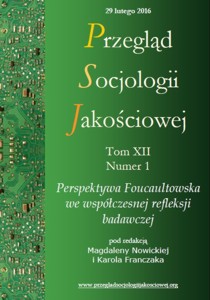
We kindly inform you that, as long as the subject affiliation of our 300.000+ articles is in progress, you might get unsufficient or no results on your third level or second level search. In this case, please broaden your search criteria.

The study starts from assumption that together with disinfomation, intoxication, and propaganda, the manipulation is a form of persuasion, a form of persuasive communication. The manipulation is a communicative action. By the way of meta-analytical method, we emphasize some ideas. The royal way of promoting the decisive interests is manipulation-, often accompanied by constraints and violence. The world is divided into amateur manipulators and professional manipulators. Professionals are those whose job is exactly to get something from the others. The action of manipulation is not an activity performed on inspiration, randomly and by ear. Manipulation is a structured, organised and planned persuasive intervention. As actants of manipulative communication are retained journalists, priests, businessmen, sellers, scholars, teachers, artists, writers, notabilities.
More...
Като част от тълпата, която обожава конференцията TED, аз се вдъхнових и започнах да организирам независимо събитие по модела на TED в НБУ. Taзи ми страст ме насочи към по-задълбочено изследване на феномена и така стигнах до тълпите в епохата на уеб 2.0, мъдростта на тълпата, нейните възможности и логично до това как всичкo казано по-горе може да се използва в сферата ми на компетентност – комуникациите и специалните събития. В настоящата студия правя преглед на развитието на феномените на 21 век краудсорсинг – възлагане на работа на тълпата, и на краудфъндинг – финансиране от тълпата. След като изяснявам произхода и смисъла на двата феномена, се насочвам към това как бихме могли ефективно да ги приложим в петте етапа на управление на специално събитие. И тази връзка между двата феномена на новата среда и теорията в областта на специалните събития е подкрепена с реални примери от практиката.“Има причини да вярваме, че настоящето присъствие на краудсорсинга е само прелюдия към много по-сериозна трансформация. В действителност, има поне 200 милиона причини да вярваме в това. Това е горе-долу броят на децата по света, които към момента имат достъп до интернет.”Джеф Хау, редактор в списание Wired.
More...
The issue of self (re)presentation rose over the time the interest of psychologists, sociologists, art historians and other social scientists. The current study will focus on clarifying the concepts of self-presentation and self-representation using the symbolic interactionism paradigm, and the dramaturgical approach, followed by an overview of the visual self-representations phenomenon in social networking systems. The analysis focuses on selfies as photographic objects (artefacts) and cultural practices.
More...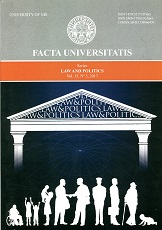
The heightened control of financial transactions in the post 9/11 society significantly curbed the fund-raising activities aimed at financing terrorism. Terrorist groups were forced to evolve and find new ways of financing their activities, while transnational criminal organizations adapted to the new circumstances by turning into powerful hybrid criminal-terrorist entities. These traditionally separate phenomena have begun to reveal many operational and organizational similarities. Globalization of the economy has created favorable conditions for terrorist organizations and criminal groups to coordinate their activities, to cooperate and share their resources, whereas both national and international legislation have unfortunately failed to keep pace with the evolving development of crime and terrorism. This article aims to examine the individual characteristics of organized crime and terrorism by pointing out to their similarities and differences, and to analyze the complexity of the crime-terror nexus. Adequate anti-terrorist and anti-criminal policy at the national level as well as globally rests on understanding each problem separately as well as their versatile correlations. Otherwise, there is a risk of a theoretical "fusion" of one problem into another which may generate problems in combating organized crime and terrorism. The author highlights the importance of acknowledging and understanding the link between crime and terror groups as the first step towards formulating an effective state response to this evolving threat.
More...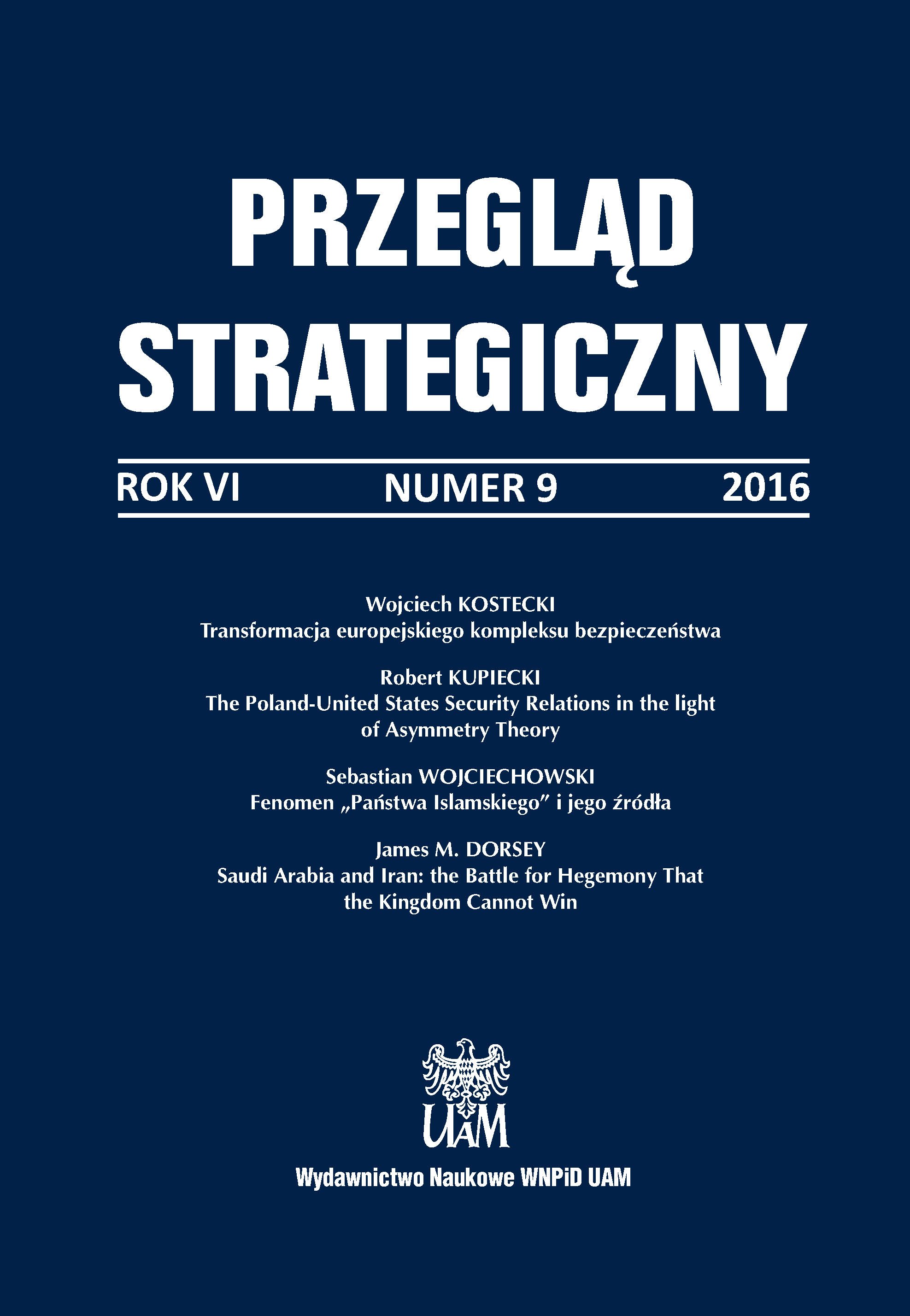
The aim of the article was to show the diversity of Daesh propaganda. It consists of the of political, religious and social narratives. They have one task – to convince the world that the newlycreated ‘caliphate’ is a fact: it has the ability to defend its territory, no matter of how great is theefforts of ‘crusaders’, moreover, is an efficient state, which is an ideal home for Sunnis. Brutalityis the element with which the propaganda Daesh primarily connotations, appears very frequently. It has specific role – to deter opponents. This reason why so often presents „hunting” onIraqi soldiers, and mass executions. This brutality, in connection with mercy, meeting the needsof justice and belonging, makes propagandas an efficient tool for building ‘caliphate’.
More...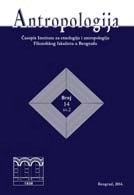
Talas viđanja aviona jednokrilaca među stanovnicima britanske Južnoafričke Unije tokom 1914. godine proučava se kao slučaj masovne histerije. Ova pojava iskorišćena je za evaluaciju korisnosti Smelserove kategorije negativnih ili neprijateljskih manifestacija histeričnih uverenja unutar Smelserove teorije dodate vrednosti kolektivnog ponašanja, naime: strukturalne pogodnosti, strukturalne napetosti, rasta i širenja generalizovanih uverenja, mobilisanja učesnika na akciju i neadekvatne mere službi društvene kontrole. Utvrđeno je da je svaka od ovih kategorija prisutna neposredno pre ove kolektivne epizode i tokom njenog trajanja, što je u skladu sa Smelserovim objaš- njenjem. Međutim, Smelserov objektivistički pristup označava kolektivno ponašanje kao iracionalno i osim toga što daje generalni poredak stanja, uključenih u konkretnu kolektivnu akciju, ne pruža ništa više.
More...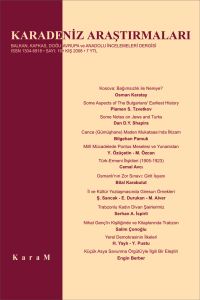
The basic aim of this study is examining The Cretan Rebellion which is a turning point in our history in all aspects. The powerfull states' attitudes are very important in these kind of issues. Because, the powerfull states' politics effect the way of events going. In this study the importance of diplomacy in these kind of issues will be manifested with different examples. In this context especially France's policies will be examined. The Cretan Rebellion has an importance for understanding contemporary issues which are internationalised. For this reason, The Cretan Rebellion is a very important historical event which will be rethinked.
More...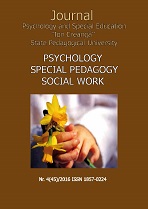
In this article, we present some theoretical syntheses pertaining to the psychology of collective protests, concerning particular factors that determine adherence to and resignation from protest actions, the role of emotions and rituals in the collective protests and new forms of mobilization through online networks. Studies show that mobilization is significantly correlated with the degree of identification with the in-group, identity threat and perception of success, while resignation may be caused by uncertainty about the use of protest or by repressive measures imposed by security forces. One aspect scarcely clarified is what was called the paradox of participation – the persistence of protest despite failures, causing individuals to join again protest actions. Regarding the role of emotions, researchers found that negative emotions against the out-group have an essential role in maintaining the protest action on a longer period. Currently, researchers are particularly interested in the implications of online communication networks (forums, Twitter, Facebook) in the organization and unfolding of protest events.
More...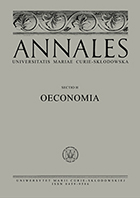
The article presents the analysis of the relations between the investor sentiment and the WIG returns on the weekly and monthly data in the period of 2011–2016. The study shows a positive, statistically significant relationship between the WIG changes and the investor sentiment index. The results obtained indicate that the WIG is the dominant variable, and the investor sentiment index depends on the WIG changes. Moreover, the Granger causality test suggests that the investor sentiment index is not the Granger cause for the WIG.
More...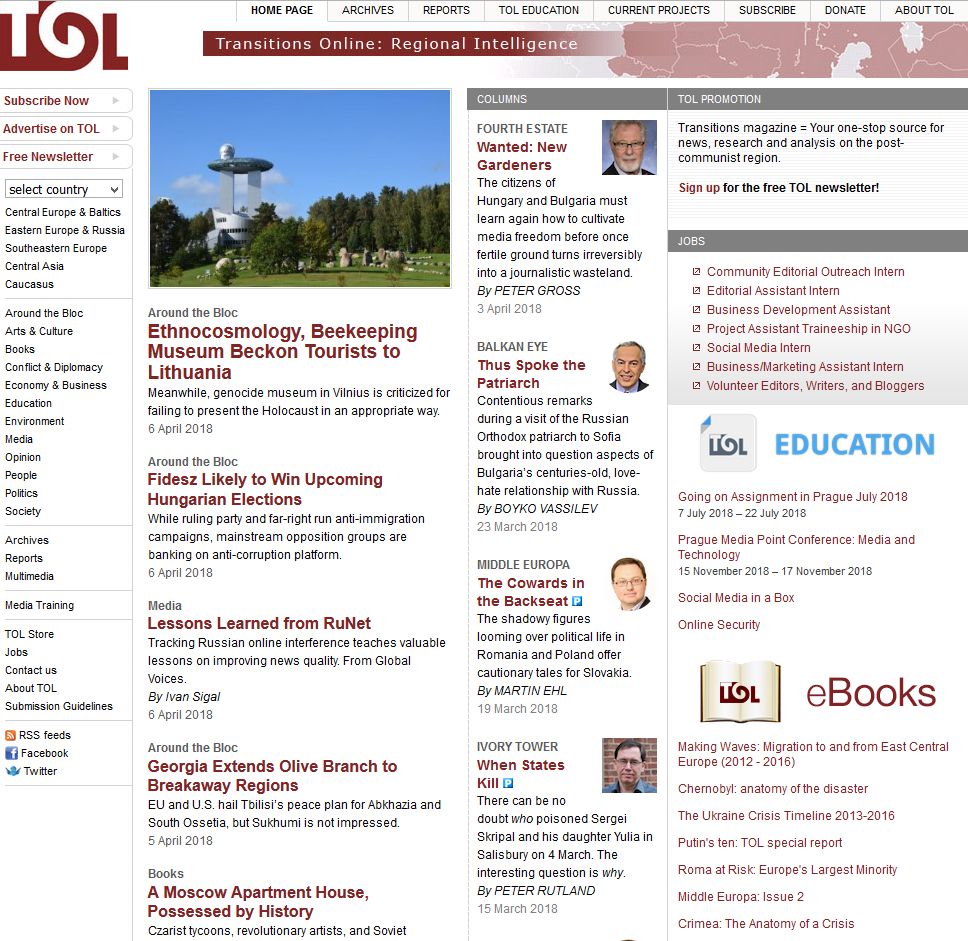
Overall, the number of migrants transiting the Balkans is down sharply, although traffickers are blazing new trails in the region.
More...
The research aims to identify and explain the dynamics of Blockupy radicalization. It explores the activity of the movement during the whole cycle of anti-austerity mobilization. The analysis addresses the research problems of why, despite the declared peaceful orientation, the movement radicalized immediately after its rise, what its dynamics of radicalization was, and what informed the radicalization processes.Research hypotheses are theory-driven and draw on the Political Opportunity Theory. According to the hypothesis, repression might have informed the dynamics of radicalization. The closer the protest policing was to the escalated force model, the higher was the extent of Blockupy radicalization. The adoption of features of negotiated management by the protest policing influenced the movement deradicalization. Finally, the duration of repression might have informed the dynamics of radicalization. The research uses the qualitative method of sources analysis and the technique of conceptual, qualitative content analysis. The sources are the information on Blockupy protest events provided by the Federal Ministry of the Interior (Germany) and GDELT datasets.The analysis revealed that during the first two phases of Blockupy radicalization, the police employed anextremely repressive type of protest policing, which was the escalated force model. Since the third phase of radicalization, the model took on the characteristics of the negotiated management model. The fact and duration of police repression informed the dynamics of Blockupy radicalization. The closer the protest policing was to the escalated force model, the higher was the extent of Blockupy radicalization. Still, the increase in radicalization occurred in the subsequent phases of contention rather than immediately. Despite the peaceful blueprint, the movement radicalized immediately after its risedue to the existing dominating model of repressive protest policing in Germany.
More...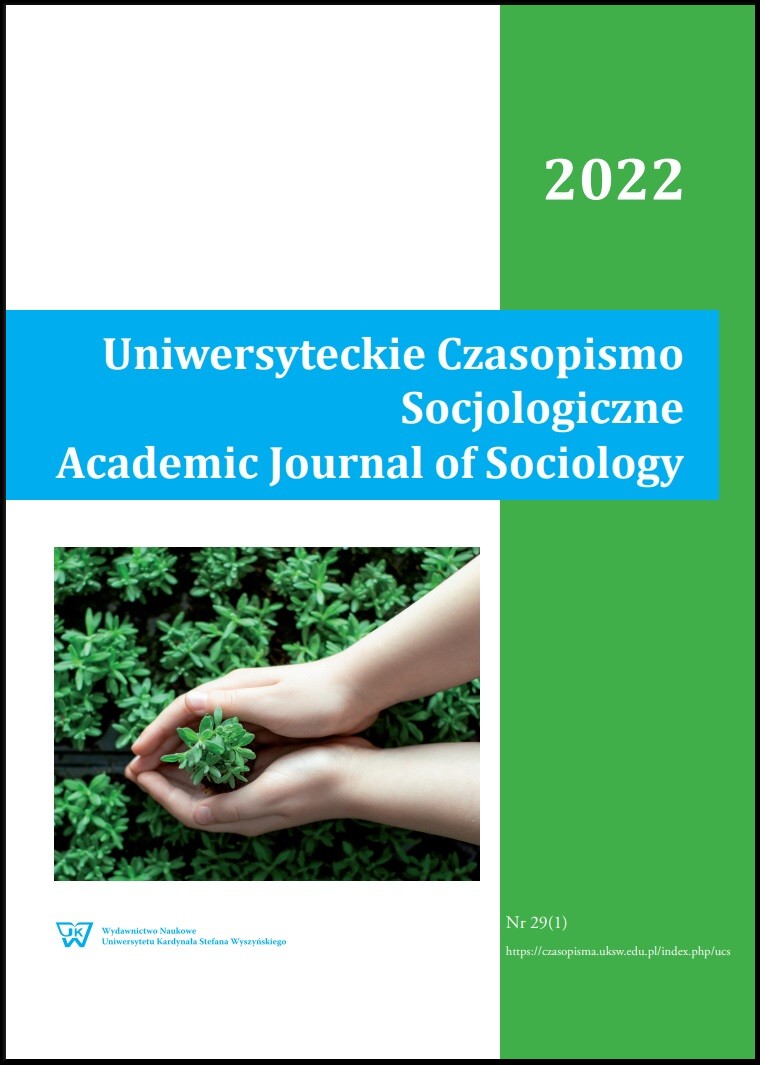
The starting point of the paper makes a theoretical analysis of the phenomena of ideology and utopia from the classical opus by Karl Mannheim, which has been consequently confronted by the ideas from the Shmuel N. Eisenstadt treatise The Jacobin Component Of Fundamentalist Movements. The following synthesis repre-sents the theoretical model that can be used to follow the aforementioned “Jacobin component” in social movements, which seem to be fundamentally divergent. Different secular movements have been analyzed along similar critical lines. Opposite movements were selected for this analysis. Among secular movements there are anarchist and feminist movements. In conclusion, the indications are that, firstly both ideological and utopian stands are no strangers to divergent social knowledge structures, social action, intellectual and social processes. The second one underlines the fact that social knowledge, which is generated, distributed and sustained in diverse and divergent social environments, has actually similar sources, origins and structure.
More...
The article considers cyclical social change in the concepts of twentieth-century researchers. Social change can be described as a repeating cycle or a linear model. In the first case, events return to the starting point after some time. Cyclical theories of social change have a long tradition dating back to antiquity, but over the centuries this approach has not found many followers. The purpose of the article is not only to present contemporary cyclical theories but also an analysis of the mechanisms which divide cyclical theory. The article will analyse Oswald Spengler and Arnold Toynbee theories describing the mechanisms of change in relation to the development cycle and the fall of civilization. However, the work will not omit the most recognized sociological cyclical concepts – Vilfredo Pareto and Pitirim Sorokin concepts. The article will also analyze two cyclical theories from the turn of the 20th and 21st centuries. The concept of the Howe and Strauss generation cycle and the concept of the secular cycles by Peter Turchin. It is also important to compare these theories with the 20th-century cyclical concepts recognized in sociology.
More...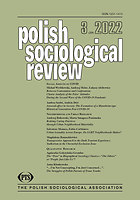
The aim of this article is to present the phenomenon of stalkerism (a kind of illegal tourism) in the Chernobyl Exclusion Zone. The article investigates the specificity of the stalker experience through the concept of transgression (Kozielecki 2007). The article broadens the perspective on the tourism experience by using a psychological concept that has not so far been widely used in tourism studies, even though it refers to classic ideas (liminality, rites of passage, transformation). The genesis and specificity of the phenomenon of stalkerism in the context of the development of organized tourism in the Zone are presented. Then the transgressions of stalkers during exploration of the Zone are described. Lastly, the article shows how stalkerism contributes to the transformation of tourism and the development of the Zone’s heritage.
More...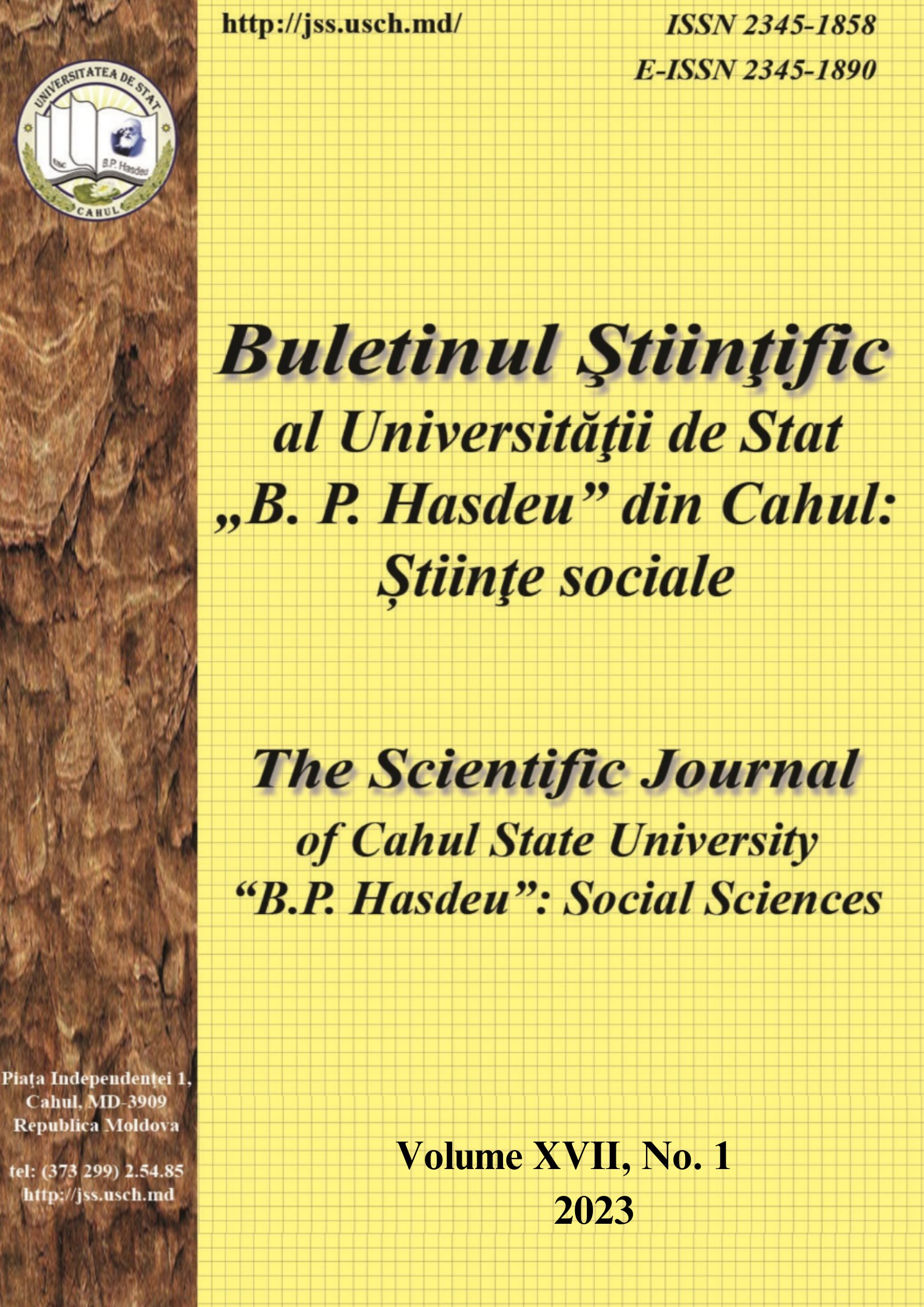
The full-scale invasion of Russia in February 2022 threw the citizens of Ukraine into a state of shock, causing a social collapse that, according to the Kremlin’s idea, should have led to the capitulation of state power and the end of Ukraine's resistance. However, the citizens of Ukraine mobilized, and already 15 months have been giving a worthy rebuff to the enemy. As a paradox, the ability of Ukrainians to reflect on tragic events comically helped in this opposition. In this article, we describe humor features that helped Ukrainians pass the sociocultural trauma of the war, namely: creating a new heroic epic, creating a new identity, ridiculing enemies' narratives, and proposing survival tactics to the human psychics. These features transforming the traumatic experience into a non-traumatic narrative and give Ukrainians hope to win the war.
More...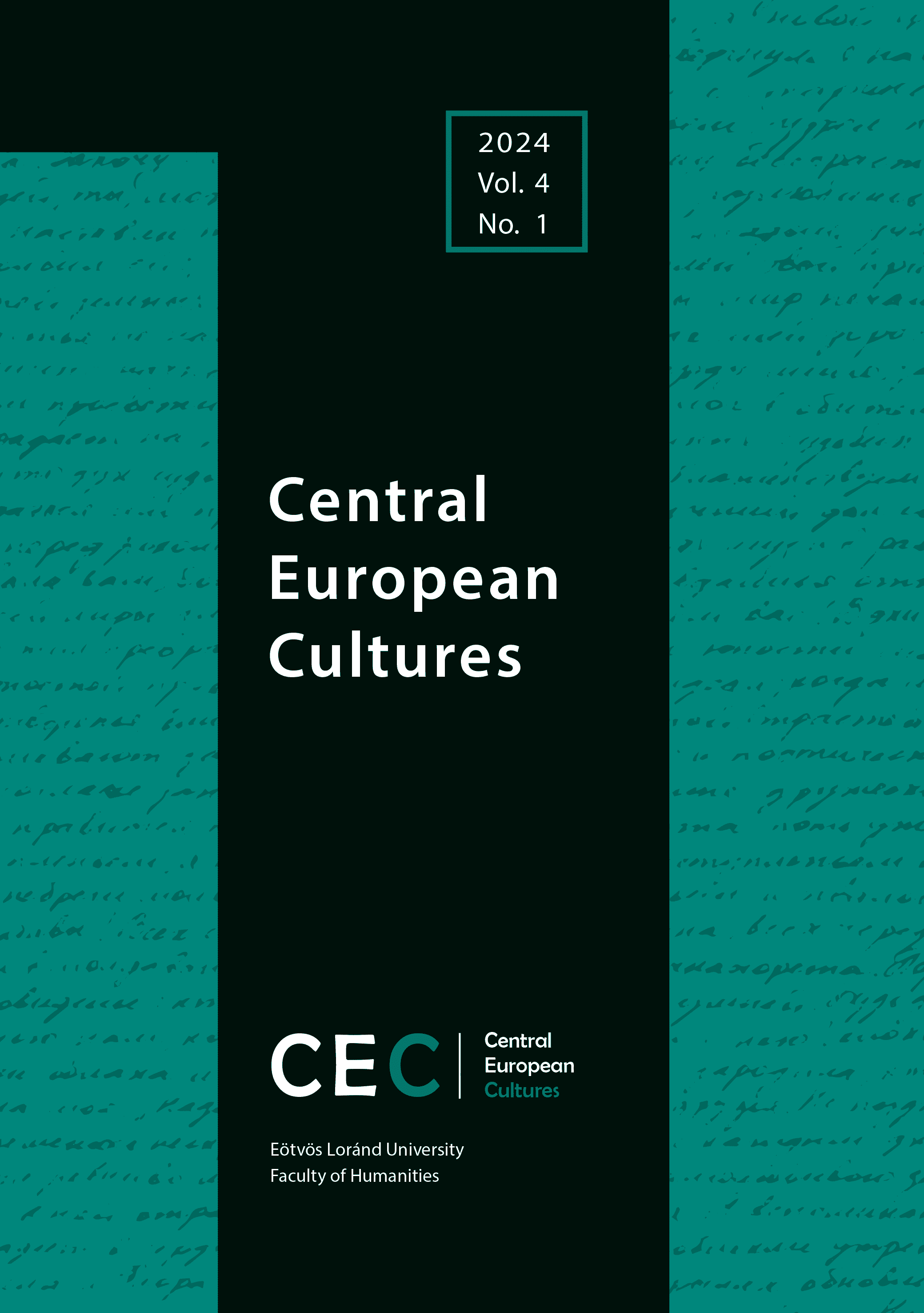
The brief historical overview comprises an account of classical crowd theories and their contemporary metamorphoses to contextualize the thematic section of the journal. Regarding the proverbial “age of the crowd” of the late nineteenth and twentieth centuries in Europe, a variety of attempts of conceptualization proved controversial but productive. Hyppolite Taine, Scipio Sighele, or Gustave Le Bon approached the phenomenon dominantly in psychological terms foregrounding the destructive elements of mass dynamics. In the interwar period, however, a first wave of differentiation might be detected, insofar as younger academic sub-disciplines, i.e., social statistics, seek to grasp the crowd as a structure with its intricate and partly paradoxical qualities. In recent scholarship, however, the diversification of the concept seems to have become even more complex: by shifting the focus from the “object crowd” to the “subject crowd”, descriptions of the multitude, the network, the swarm, or the assembly reflect the need to think of the crowd as an autonomous agency with emancipatory potentials.
More...
For a short time in the mid-1930s, Prague turned into the hub of discussions about the role of psychology in history. Far from being a mere methodological debate, the question why masses act against their conscious interests was seen as a central point of this endeavor. The issue intrigued not only the left-leaning Czechoslovak historians who formed the Historická skupina (the Historical Group) and were influenced by similar attempts in Germany, namely by the Institut für Sozialforschung in Frankfurt am Main, but also psychoanalysts in exile, like Otto Fenichel, who conducted inquiries in a similar vein, all the more as the menace of German fascism grew stronger. The paper sketches the contacts between different groups and presents the main results of their deliberations.
More...
The paper discusses the activities, the behaviour, and the function of the crowd of the 1956 Hungarian Revolution. Based on contemporary documents, the study shows the characteristics of the mass movements of the 1956 Revolution. The main question is how the crowd, already explored theoretically by social psychology and other sciences, functioned in different settings: what types of gatherings and demonstrations emerged, how the local context and the social composition of the crowd influenced its behaviour, and how this was perceived by bystanders.
More...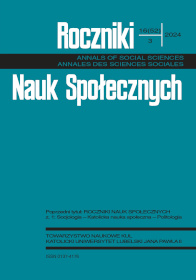
The phenomenon known as woke is based on the left-wing, neo-Marxist idea of fightingfor a better world. Generally speaking, it means an “awakened” awareness of racism and the lackof social justice. This term, in its current radicalized meaning, became commonly used at the beginningof the 21st century. It’s four major charasteristics can be specified in the following way: the fight forsocial justice, cancel culture, „snowflake” culture, and culture of harm. These expressions generallyindicate on social activism that is focused on fighting systemic repression of various social groups.It can be said that woke in conjunction wiht the irrational ideology of wokeism constitute a serioustrend nowadays that has a significant impact on people’s mentality which penetrate to social life,politics, business, education, culture and even religion. From a Christian point of view, it is necessaryto expose the authoritarian nature of woke and it’s supporters’s fanaticism. The ideology of wokeismposes a civilizational problem that must be overcome. The point is that it shoud be done everythingpossible to prevent it from becoming a new, postmodern authoritarianism along the lines of the oldMarxist “real socialism”.
More...